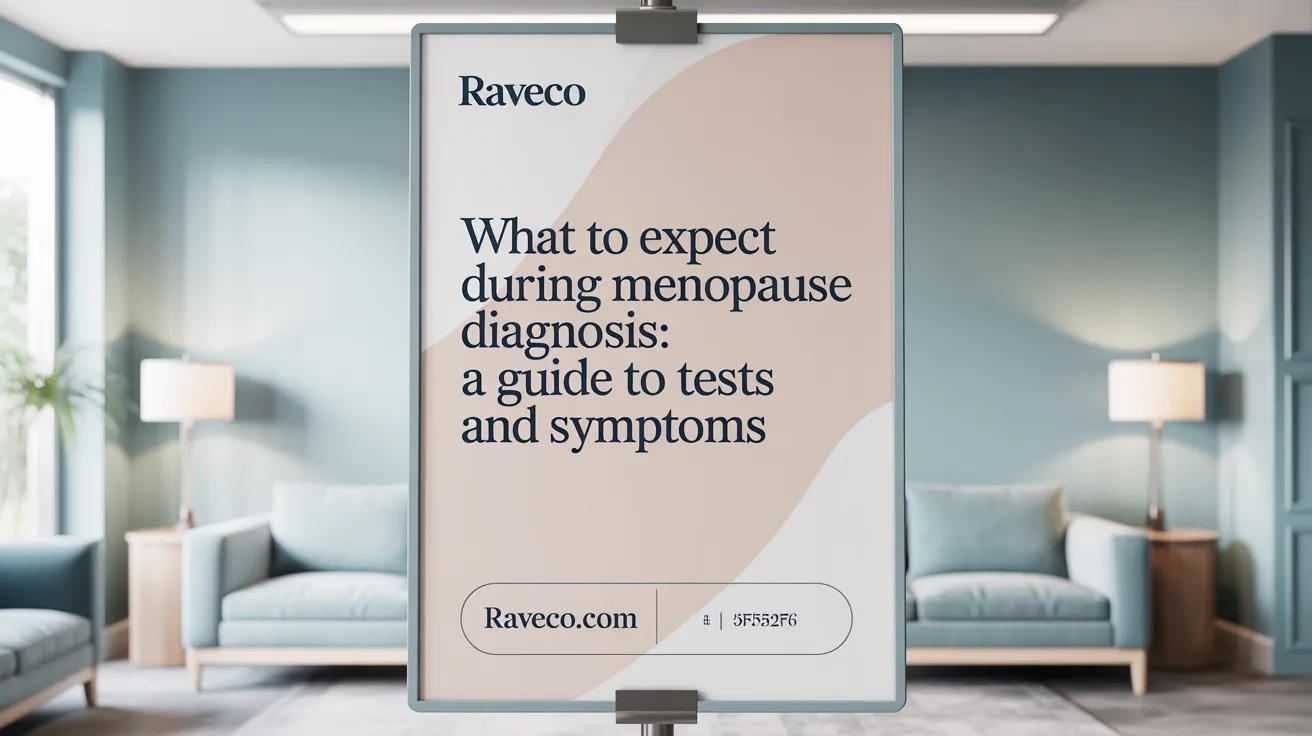Navigating Birth Control Choices: A Comprehensive Guide for Young Women

Understanding Menopause: A Natural Transition
Menopause marks a significant phase in a woman's life, encompassing complex hormonal changes that influence physical and emotional health. This article aims to provide comprehensive, evidence-based information about menopause stages, symptoms, diagnosis, and management strategies. By combining lifestyle approaches and medical options, women can navigate menopause with confidence and maintain long-term well-being.
Stages of Menopause and Their Common Symptoms

What are the different stages of menopause and their common symptoms?
Menopause is a natural transition in a woman’s life that occurs over several stages, each with distinct characteristics and symptoms. Understanding these stages helps women prepare and manage their health effectively.
The first stage is perimenopause, which usually begins in a woman’s mid-40s but can start as early as the early 40s or even late 50s. This transitional period can last from 1 to 10 years and is marked by fluctuating hormone levels that lead to irregular periods. Women often experience hot flashes, mood swings, sleep problems, and changes in their menstrual cycle during this phase.
The second stage, menopause, is diagnosed after a woman has gone 12 consecutive months without a period. This typically occurs around the age of 52 but can vary. Menopause signifies the end of fertility and is associated with symptoms such as night sweats, vaginal dryness, fatigue, and irregular bleeding that eventually stops.
Following menopause is postmenopause, which lasts for the rest of a woman’s life. While some symptoms like hot flashes and vaginal dryness may diminish over time, the drop in estrogen levels increases the risk of health issues like osteoporosis and cardiovascular disease.
To summarize, menopause unfolds in three main phases:
| Stage | Typical Age Range | Common Symptoms | Long-term Considerations |
|---|---|---|---|
| Perimenopause | Early 40s to late 50s | Irregular periods, hot flashes, sleep disturbances, mood swings | Variable duration, hormone fluctuations |
| Menopause | Around 52 | Night sweats, vaginal dryness, irregular bleeding | End of fertility, hormonal changes |
| Postmenopause | After age 52 | End of symptoms for many, increased health risks | Elevated risks for osteoporosis, heart disease |
Throughout these stages, symptoms such as hot flashes, irregular periods, mood swings, and vaginal dryness are common. Recognizing these changes allows women to seek appropriate medical advice and adopt lifestyle strategies to improve quality of life.
Overall, understanding the different phases of menopause and their typical symptoms empowers women to manage their health proactively and seek necessary treatments or lifestyle modifications.
Diagnosing Menopause: What to Expect from Healthcare Providers

How is menopause diagnosed by healthcare professionals?
Menopause is primarily diagnosed based on a woman's symptoms, such as irregular periods, hot flashes, night sweats, and other menopausal signs. Her age is also an important factor, with most women experiencing menopause between 45 and 56 years old. Doctors often make a retrospective diagnosis after a woman has gone 12 consecutive months without a period.
To support the diagnosis, healthcare providers may order blood tests to measure hormone levels. These typically include follicle-stimulating hormone (FSH), estradiol, and luteinizing hormone (LH). During menopause, FSH levels tend to increase significantly (often above 30 mIU/mL), while estradiol levels drop. High FSH and low estradiol together are strong indicators of menopause.
Sometimes, additional tests are necessary to exclude other conditions. These can include TSH tests to check thyroid function, prolactin levels, or hCG to rule out pregnancy if relevant. Although hormone testing can be helpful, many diagnoses are made based on clinical history and symptom patterns alone, without the need for blood tests.
In summary, diagnosis involves a combination of symptom assessment, age evaluation, and, when needed, hormone blood tests.
Lifestyle Changes to Effectively Manage Menopause Symptoms
What lifestyle changes can help manage menopause symptoms effectively?
Managing menopause symptoms often involves lifestyle adjustments that can bring significant relief and promote overall health. A primary aspect is maintaining a balanced diet rich in calcium and vitamin D. These nutrients are essential for bone health, which is particularly important given the increased risk of osteoporosis during and after menopause. Food sources include dairy products, leafy greens like kale, fatty fish, and fortified foods.
Regular exercise, especially weight-bearing and resistance activities like walking, dancing, or strength training, helps strengthen bones and muscles. Exercise also improves mood, sleep, and energy levels, all of which may be affected by menopause. Incorporating stress reduction techniques such as yoga, tai chi, or meditation can help manage mood swings and anxiety. These practices promote relaxation and mental well-being.
Good sleep hygiene is crucial. Establishing regular sleep routines, avoiding stimulants such as caffeine and alcohol before bed, and keeping the bedroom cool can alleviate sleep disturbances. Women are encouraged to wear light clothing and use fans or cooling devices during hot flashes and night sweats.
Avoiding known triggers like spicy foods, caffeine, alcohol, and stressful situations can help reduce frequency and severity of hot flashes. Smoking cessation and maintaining a healthy weight are vital, as obesity increases the risk of cardiovascular disease and worsens menopause symptoms.
For vaginal dryness, over-the-counter moisturizers and lubricants provide relief and improve comfort during intimacy. Women should consult healthcare providers about other treatments such as hormone therapy if necessary.
By adopting these lifestyle changes, women can effectively manage menopause symptoms and support their overall health. Combining good nutrition, physical activity, stress management, and avoiding triggers creates a comprehensive approach to navigating this natural life stage.
| Aspect | Recommended Actions | Additional Notes |
|---|---|---|
| Diet | Increase calcium and vitamin D intake | Supports bone health |
| Exercise | Engage in walking, dancing, resistance training | Enhances bone density and mood |
| Stress Reduction | Practice yoga, meditation, tai chi | Promotes relaxation |
| Sleep Hygiene | Keep bedroom cool, establish routines | Improves sleep quality |
| Triggers | Limit spicy foods, caffeine, alcohol | Reduces hot flashes |
| Lifestyle | Quit smoking, maintain healthy weight | Lowers health risks |
| Vaginal Dryness | Use OTC moisturizers/lubricants | Improves comfort |
These lifestyle interventions, tailored to individual needs and health conditions, can make menopause transition smoother while boosting overall well-being.
Exploring Medical Treatment Options for Menopause Relief

What medical treatment options are available to alleviate menopause symptoms?
Women experiencing menopause can choose from a variety of medical treatment options tailored to their specific symptoms and health considerations. One of the primary treatments is hormone therapy (HT), which involves administering estrogen alone or combined with progestogen. This approach is particularly effective in reducing hot flashes, night sweats, vaginal dryness, and helping to prevent bone loss caused by decreased estrogen levels.
Vaginal estrogen treatments such as creams, rings, or tablets are designed to directly target genitourinary symptoms. These localized therapies provide relief from dryness, discomfort, and pain during sex, with minimal absorption into the bloodstream, making them suitable for women concerned about systemic effects.
For women who cannot or prefer not to use hormonal therapy, non-hormonal medications offer viable alternatives. Low-dose antidepressants, specifically SSRIs and SNRIs like venlafaxine, are effective in managing hot flashes and mood swings. Other options include medications such as gabapentin and clonidine, which help reduce hot flashes and improve sleep. A newly approved drug called fezolinetant acts on brain pathways controlling body temperature, providing additional relief from hot flashes.
In addition to menopause-specific treatments, managing osteoporosis through medications—including bisphosphonates, selective estrogen receptor modulators like ospemifene, and calcium and vitamin D supplements—is crucial to prevent fractures and maintain bone health.
Given the complexities and individual variations of menopause symptoms, personalized treatment plans are essential. Healthcare professionals assess each woman's health profile, preferences, and risks to recommend the most appropriate therapies. Regular consultation ensures adjustments can be made, optimizing symptom relief while minimizing potential side effects.
| Treatment Type | Common Medications/Methods | Focused Symptoms | Notes |
|---|---|---|---|
| Hormone Therapy (HT) | Estrogen, progestogen, estrogen-progestogen combo | Hot flashes, night sweats, vaginal dryness | Effective; risk-benefit assessment needed |
| Vaginal Estrogen Treatments | Creams, rings, tablets | Vaginal dryness, discomfort | Localized; minimal systemic absorption |
| Non-hormonal Medications | SSRIs (e.g., escitalopram), SNRI (e.g., venlafaxine), gabapentin, clonidine, fezolinetant | Hot flashes, mood swings | Suitable for those contraindicated for HT |
| Osteoporosis Treatments | Bisphosphonates, calcium, vitamin D, ospemifene | Bone density loss | Important for long-term bone health |
Overall, breast healthcare decisions should involve thorough discussions with healthcare providers to choose the most suitable options, considering each woman’s unique health profile and symptom severity.
Natural Remedies: Benefits and Considerations
Are natural remedies effective in managing menopause symptoms, and which ones are recommended?
Many women turn to natural remedies in hopes of easing menopause symptoms such as hot flashes, night sweats, and mood swings. Although some herbal supplements are popular, the scientific evidence supporting their effectiveness varies.
For instance, black cohosh and soy isoflavones have been studied for their potential to reduce hot flashes and improve overall comfort during menopause. Some research indicates these supplements may offer modest relief, but results are inconsistent. This means they might help some women while others see little benefit.
It’s important to recognize that herbal remedies like evening primrose oil and bioidentical hormones are used traditionally, but their safety and effectiveness are not fully confirmed by rigorous scientific studies. Overuse or inappropriate use of these products can carry risks or cause interactions with other medications.
In addition to herbal options, lifestyle practices remain central to managing menopause. Regular physical activity, stress reduction techniques such as yoga or meditation, and maintaining a healthy diet rich in calcium and vitamin D support overall well-being. Avoiding common triggers like caffeine, alcohol, and spicy foods can also help lessen hot flashes.
Before considering any herbal or natural supplement, consulting a healthcare provider is essential. They can provide personalized advice, ensure that treatments are safe, and help prevent adverse interactions with prescribed medications or underlying health conditions.
Ultimately, while some women find relief with natural remedies, these should complement a comprehensive approach that includes medical guidance and lifestyle adjustments to effectively manage menopause symptoms.
Supporting Healthy Aging Through and Beyond Menopause

What strategies can women use to support healthy aging during and after menopause?
Supporting healthy aging during and after menopause involves a combination of lifestyle choices, medical care, and emotional well-being practices.
A cornerstone of health maintenance is a diet rich in essential nutrients. Women are encouraged to include plenty of calcium and vitamin D in their daily meals. These nutrients are vital for maintaining strong bones and preventing osteoporosis, a common concern post-menopause. Dairy products like milk and yoghurt, leafy greens such as kale, and fortified foods provide good sources of calcium. Sunlight exposure and supplements can help meet vitamin D needs, which is crucial for calcium absorption and bone health.
Regular physical activity is equally important. Engaging in weight-bearing exercises such as walking, running, or dancing, along with resistance training, can improve cardiovascular health, preserve muscle mass, and support bone density. Exercise also benefits mental health, mood, sleep quality, and overall energy levels.
Maintaining a healthy weight by balanced nutrition and regular activity is vital. It can lessen menopause symptoms, like hot flashes and night sweats, and reduce the risk of chronic illnesses such as heart disease, diabetes, and osteoporosis.
Avoiding smoking and limiting alcohol intake contribute significantly to long-term health. Smoking accelerates bone loss and increases cardiovascular risks, while excessive alcohol can affect liver health and disrupt hormonal balance.
Managing stress is another essential strategy. Relaxation techniques like yoga, tai chi, or meditation can help alleviate mood swings, anxiety, and sleep problems commonly experienced during menopause.
Routine medical screenings are crucial as well. Regular checkups allow early detection of health issues and can guide personalized treatments. In some cases, hormone therapy or other medications might be recommended to ease troublesome symptoms and decrease health risks.
Mental well-being and social engagement play a significant role in maintaining quality of life. Staying connected with friends, family, and support groups fosters emotional resilience.
Lastly, prioritizing sleep hygiene by establishing good sleep routines and addressing sleep disturbances ensures adequate rest, which is fundamental for overall health.
Combining these strategies creates a comprehensive approach to aging healthfully, promoting vitality and reducing disease risks well into later years.
| Strategy | Actions | Benefits |
|---|---|---|
| Nutritional Intake | Calcium-rich foods, Vitamin D supplements | Strong bones, reduced osteoporosis risk |
| Physical Activity | Walking, strength training, dancing | Heart health, muscle preservation, mood enhancement |
| Lifestyle Habits | Healthy weight, no smoking, limited alcohol | Reduced chronic disease risks |
| Stress Management | Yoga, meditation, tai chi | Better mood, sleep, reduced anxiety |
| Medical Screenings | Routine checkups, hormone assessments | Early diagnosis, tailored treatment |
| Sleep and Mental Wellbeing | Good sleep routines, social engagement | Improved sleep, emotional resilience |
Maintaining these habits supports women in enjoying a healthy, active, and fulfilling life during and after their menopause transition.
Managing Mood Changes and Mental Health During Menopause

How do mood swings, irritability, and depression manifest during menopause?
Many women experience emotional shifts during menopause, including mood swings, increased irritability, and feelings of depression. These symptoms are often linked to hormonal fluctuations, particularly the decrease in estrogen levels. These emotional changes can affect daily life, relationships, and overall wellbeing.
What role does cognitive behavioral therapy (CBT) play in managing mood and sleep problems?
Cognitive Behavioral Therapy (CBT) is a proven psychological approach that can help women cope with mood disturbances, anxiety, and sleep issues associated with menopause. CBT helps modify negative thought patterns and develop healthier coping strategies, often leading to improved mood and better sleep quality.
How can regular exercise and relaxation practices help?
Engaging in regular physical activity, such as walking, yoga, or tai chi, can significantly boost mood, reduce anxiety, and improve sleep. Relaxing activities like meditation, deep breathing exercises, and mindfulness also lower stress levels, promote mental clarity, and lessen mood swings.
Is hormone therapy effective for mood management?
Hormone therapy (HRT) might be beneficial in alleviating mood symptoms when prescribed by a healthcare professional. It aims to restore hormonal balance, which can improve emotional wellbeing. However, it is essential to evaluate potential risks and benefits with a doctor before starting.
Why is seeking social support and professional help important?
Talking with family, friends, or colleagues who understand menopause can provide emotional relief and practical advice. Professional support through counseling or support groups offers a safe space to discuss feelings, learn coping strategies, and reduce the risk of severe depression or anxiety.
| Strategy | Benefits | Additional Notes |
|---|---|---|
| Psychological therapies (CBT) | Improve mood, reduce anxiety, and enhance sleep | Should be guided by trained therapists |
| Regular exercise | Elevates mood, reduces stress, improves sleep | Activities like walking, yoga, dancing encouraged |
| Relaxation techniques | Lower stress levels, promote mental clarity | Includes yoga, tai chi, meditation |
| Hormone therapy | May stabilize mood by correcting hormone imbalances | Discussion with healthcare provider essential |
| Social support | Provides emotional connection and practical advice | Support groups and open communication recommended |
Staying proactive about mental health during menopause involves a combination of lifestyle changes, psychological support, and medical guidance where appropriate. Regularly consulting healthcare providers ensures personalized strategies to nurture emotional wellbeing during this transitional phase.
Addressing Sleep Disturbances in Menopausal Women
What are common sleep problems during menopause?
Many women experience sleep issues during menopause, including difficulty falling asleep, waking up frequently during the night, or waking up too early. Sleep disruptions can lead to fatigue, mood swings, and reduced overall well-being.
What are some sleep hygiene recommendations?
Maintaining good sleep hygiene can significantly improve sleep quality. Women are encouraged to establish a consistent sleep schedule, create a comfortable and dark sleeping environment, and stick to relaxing bedtime routines.
How can avoiding stimulants and screen time before bed help?
Limit intake of caffeine and alcohol, especially in the evening, as they can interfere with sleep. Additionally, reducing exposure to screens such as smartphones, tablets, or computers at least an hour before bed can help prevent disruptions, as the blue light emitted can hinder melatonin production.
What relaxation techniques like meditation and yoga can assist?
Practicing relaxation methods such as yoga, meditation, or deep breathing exercises can calm the mind and body, making it easier to fall asleep. Incorporating these practices into a daily routine can also reduce stress and improve overall sleep quality.
How does cognitive behavioral therapy (CBT) support sleep during menopause?
CBT for insomnia is a proven approach that helps identify and change negative thoughts and behaviors related to sleep. It can be tailored for menopausal women dealing with sleep issues, and often provides sustainable improvements without medication.
Implementing these strategies can help manage sleep disturbances, promoting better health and quality of life during menopause.
Coping with Vasomotor Symptoms: Hot Flashes and Night Sweats
What are common triggers for hot flashes and night sweats?
Many women find that certain foods and drinks can worsen hot flashes and night sweats. Spicy foods, caffeine, and alcohol are common culprits that can increase the intensity or frequency of these symptoms.
Additionally, environmental factors like warm or stuffy rooms can trigger hot flashes. Recognizing these triggers can help women manage their symptoms more effectively.
What lifestyle adjustments can help manage hot flashes and night sweats?
Simple lifestyle changes can provide significant relief. Dressing in layers allows women to adjust clothing quickly when a hot flash occurs. Using fans or keeping the bedroom cool can help during the night.
Staying hydrated by drinking cool water and opting for breathable fabrics like cotton can also make a difference. Avoiding trigger foods, especially before bedtime, can reduce the severity of night sweats.
How does regular exercise help with hot flashes?
Engaging in physical activity regularly, such as walking, swimming, or dancing, can help reduce the frequency and intensity of hot flashes. Exercise promotes overall well-being, improves sleep, and may stabilize hormone levels.
However, it’s best to avoid heavy exercise during the hottest parts of the day or right before bed, as it can sometimes trigger symptoms or disrupt sleep.
What treatment options are available?
Managing hot flashes involves both lifestyle strategies and medical options. Hormonal therapies, like menopausal hormone therapy, are effective but should be discussed with healthcare providers due to potential risks.
Non-hormonal medications, including certain antidepressants and anticonvulsants, can also reduce hot flashes. Recently approved drugs like fezolinetant target brain areas that control temperature regulation.
How can stress management techniques assist?
Stress can trigger or worsen hot flashes. Relaxing activities such as yoga, tai chi, deep breathing exercises, and meditation can help lower stress levels.
These practices promote relaxation, improve mood and sleep, and may lessen the intensity of vasomotor symptoms. Incorporating stress reduction into daily routines is a valuable component of symptom management.
Sexual Health and Intimacy Post-Menopause
How does menopause affect vaginal health and comfort?
Many women experience vaginal dryness and discomfort during menopause due to decreased estrogen levels. This can make intimacy uncomfortable and affect sexual confidence.
What are options for managing vaginal dryness?
Over-the-counter vaginal moisturizers and lubricants are effective for relieving dryness and discomfort. It’s advisable to choose water-based lubricants, especially when using latex condoms, as oil-based lubricants can degrade latex.
Are there medical treatments available?
For more persistent issues, doctors may recommend vaginal estrogen creams, tablets, or rings, which are applied locally. These treatments deliver small amounts of estrogen directly to vaginal tissues, improving elasticity, moisture, and comfort. Ospemifene, an oral medication, is also prescribed to treat painful intercourse caused by vaginal atrophy.
How can communication support intimacy?
Open conversations with partners about symptoms and discomfort can help maintain intimacy. Sharing feelings and exploring new ways to enjoy intimacy can reduce emotional stress related to sexual activity.
What is the emotional impact?
Many women feel frustrated or distressed about changes in their sexual health. Support from partners, counselors, or menopause specialists can help navigate these changes.
Summary table:
| Aspect | Options | Additional Info |
|---|---|---|
| Vaginal dryness | Moisturizers, lubricants | Use water-based for compatibility with condoms |
| Medical treatments | Vaginal estrogen, ospemifene | Prescription options for persistent symptoms |
| Emotional support | Open communication, counseling | Important for emotional well-being |
| Overall | Maintain intimacy, stay informed | Discuss with healthcare providers for tailored advice |
Bone Health and Osteoporosis Prevention After Menopause
How does menopause affect bone density?
During menopause, declining estrogen levels lead to increased bone loss. On average, women can lose about 25% of their bone mass between menopause and age 60. This process heightens the risk of osteoporosis, a condition where bones become fragile and more prone to fractures.
Why is calcium and vitamin D important?
Maintaining adequate calcium intake is essential for bone strength. Foods rich in calcium like milk, yoghurt, and kale help support bone health. Vitamin D, which can be obtained from sunlight exposure and dietary sources such as fatty fish, eggs, and fortified foods, facilitates calcium absorption. Supplementing with vitamin D can also be beneficial, especially for those with limited sun exposure.
What role does exercise play?
Regular weight-bearing and resistance exercises are vital in preserving bone density. Activities such as walking, running, dancing, or strength training help stimulate bone formation and reduce bone loss. Incorporating these exercises into your routine can significantly lower osteoporosis risk.
How do lifestyle habits impact bone health?
Smoking and excessive alcohol consumption are linked to increased bone loss. Quitting smoking and moderating alcohol intake are crucial steps to protect your bones. Additionally, maintaining a healthy weight through balanced nutrition and regular activity supports overall bone density.
What medical options are available?
| Treatment Type | How It Works | Additional Notes |
|---|---|---|
| Hormone Therapy | Uses estrogen to slow bone loss | Suitable for some women under medical guidance |
| Osteoporosis Medications | Drugs like bisphosphonates strengthen bones | Available upon healthcare provider recommendation |
| Vitamin D and Calcium Supplements | Support bone mineralization | To be used alongside lifestyle measures |
Adopting these strategies can help maintain stronger bones, reduce fracture risk, and promote overall health during postmenopause.
Contraception and Fertility Considerations in Perimenopause
Is it possible to get pregnant during perimenopause?
Yes, women can still conceive during perimenopause, the transitional phase before menopause. Even if periods become irregular, ovulation can still occur, making pregnancy possible until menopause is officially confirmed.
Should I continue using contraception until menopause is confirmed?
Absolutely. Since fertility can persist into perimenopause, using contraception is important until a woman has gone 12 consecutive months without a menstrual period. Relying on birth control prevents unintended pregnancies during this time.
How do menstrual patterns change during perimenopause?
During perimenopause, menstrual cycles often become irregular, shorter or longer, and may vary in flow. These changes are linked to fluctuating hormone levels, which can also cause symptoms like hot flashes, mood swings, and sleep disturbances.
Why is consulting a healthcare provider important?
If you notice irregular periods or other symptoms, it's advisable to speak with a healthcare professional. They can confirm whether you're in perimenopause, help distinguish it from other health issues, and recommend appropriate contraception or health strategies.
Understanding these aspects ensures women manage fertility and health risks effectively during this transitional phase.
Finding Reliable Support and Resources for Menopause
Navigating menopause can be challenging, but women are not alone. Accessing trusted support and accurate information is crucial for managing symptoms and maintaining overall health.
Healthcare professionals, such as primary care physicians and specialists like endocrinologists, are valuable resources. They can offer personalized advice, guidance on hormone therapy, and referrals for further testing or treatment options. Consulting with a healthcare provider ensures that women receive tailored care suited to their specific needs.
Reputable organizations play a significant role in providing evidence-based information. The North American Menopause Society (The Menopause Society) and the Society for Women’s Health Research (SWHR) are leading sources of educational materials and current research updates. These organizations host websites that include symptom trackers, informational articles, and questions to ask your doctor before appointments, empowering women to make informed decisions.
Support groups and peer networks offer emotional comfort and practical insights. Groups like Red Hot Mamas connect women experiencing similar transitions, fostering a sense of community and shared understanding. These networks can be local or online, providing accessible avenues for support.
Utilizing tools such as symptom diaries or trackers can help women monitor changes over time. When preparing for doctor visits, compiling a list of symptoms, current medications, and concerns can facilitate more productive consultations.
Access to specialists like gynecologists, endocrinologists, or pelvic health experts can further refine management strategies. Trusted online portals and educational websites are valuable for initial learning, understanding menopause stages, and exploring treatment options.
Women should always seek information from credible sources to avoid misinformation. The combination of medical guidance, reputable organizations, community support, and practical tools creates a comprehensive approach to managing menopause effectively.
For further assistance, searching with the query "Trusted menopause support organizations and resources" can lead to authoritative information and support focused on women’s health during this transitional period.
Empowering Women Through Knowledge and Care
Understanding the physiological changes and symptoms of menopause empowers women to take proactive steps toward managing their health and quality of life. Combining evidence-based lifestyle modifications with appropriate medical treatments tailored by healthcare professionals offers effective relief from menopause symptoms while supporting healthy aging. Accessing credible information and supportive communities further enhances confidence during this life transition. With comprehensive care and personal commitment, women can navigate menopause safely and thrive in the decades beyond.
References
- Menopause - Things you can do
- Menopause symptoms and relief
- Menopause - Diagnosis and treatment
- Menopause: What It Is, Age, Stages, Signs & Side Effects
- Menopause lifestyle changes: Powerful Tips for Comfort 2025
- Manage Menopause with Lifestyle Changes
- Managing Menopause
- 11 Natural Ways to Reduce Symptoms of Menopause





.png)